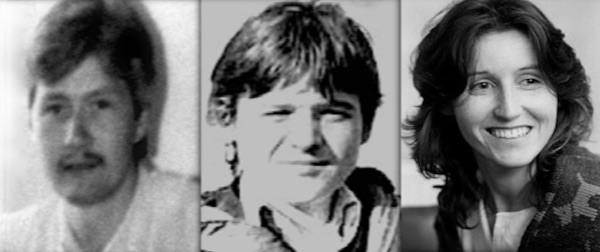
The Dublin government secretly reassured the British in 1988 it would not take a case to the European Court of Human Rights over the SAS ambush and summary execution of three unarmed IRA Volunteers in Gibraltar.
The decision by Dublin not to meaningfully pursue Britain over its ‘shoot-to-kill’ policy of state killings and assassinations came amid intense British pressure in the wake of the Enniskillen bombing four months earlier, in which the IRA was blamed for causing the deaths of twelve innocent civilians.
As part of a significant escalation, an undercover SAS unit shot three Volunteers of an IRA Active Service Unit dead as they walked through Gibraltar, a British territory to the south of Spain, on March 6th 1998. Mairead Farrell, Danny McCann and Sean Savage were unarmed when they were shot from behind at close range. One eyewitness said after the shootings he saw one of the three being shot as he lay on the ground.
In a meeting with a senior Irish official, then British Direct Ruler Tom King claimed an inquest had been properly conducted and that closed the matter. He said the inquest found the killings had been the result of a “cock-up” by soldiers rather than a “conspiracy”. He warned that if the Taoiseach called for an inquiry it would create “great difficulties”.
In a key exchange, senior Irish diplomat Sean O hUiginn met with King in Belfast to reassure him that there was no intention of taking the case to Europe despite immense pressure to do so. In the event, the families of the three IRA members were forced a case to take their own case to human rights court in Strasbourg, which found against the British government.
Papers released this year confirmed that the shoot-to-kill policy of that period was very deliberate and was taking place with the quiet approval of senior figures.
In January 1988, then British attorney general Patrick Mayhew claimed “national security” when he announced that 11 RUC policemen named in the Stalker inquiry into shoot-to-kill would not be prosecuted for dozens of killings.
This caused consternation for the Dublin government. Gerry Collins, then minister for justice, admitted to British officials that a “very high percentage” of the Irish public believed that the cover-up went “all the way up to the British cabinet”.
Dublin had already been made aware that the then Chief Constable of the RUC had backed those who were involved in a covered up of the killings, by publicly supporting an officer who said there was ‘no law against telling lies’ at a police dinner.
Moreover, the papers show that Dublin became fully aware that the policy of cover-up had approval from Thatcher herself. One record noted that, when questioned about it in February 1988, the British Prime Minister defended “her boys”.
Asked directly about shoot-to-kill by former Alliance leader John Alderdice at a meeting with former British Direct Ruler Tom King, Thatcher angrily said that “she would always have to consider the lives of her ‘boys over there’.” Alderdice took this to mean MI5, according to the files. King was reported to have appeared “somewhat embarrassed” by the exchange.
Dublin’s subsequent failure to press for a proper inquiry into the Gibraltar killings is now seen to have paved the way for other British war crimes.
Responding to the news, Niall Farrell, whose sister Mairead was among those died in Gibraltar, said the decision had given “a green light” for the shoot-to-kill policy to continue, resulting in “a series of deadly shootings in County Tyrone and Belfast where both IRA members and civilians were unnecessarily killed.”
![[Irish Republican News]](https://republican-news.org/graphics/title_gifs/rn.gif)
![[Irish Republican News]](https://republican-news.org/graphics/title_gifs/harp.gif)

